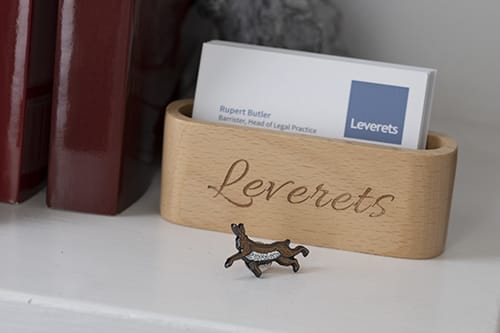The Insolvency Service’s latest report on enforcement outcomes records a significant increase in director disqualifications. A total of 932 directors were disqualified by the Insolvency Service in 2022/23, compared to 802 in 2021/2022.
Misconduct or unfitness of directors remains the most common reason for a director to be disqualified. When a company enters into insolvency, the insolvency officeholder has a duty to investigate the circumstances of the insolvency, while the directors have a duty to co-operate with the investigation. The officeholder submits its finding to the Insolvency Service, which may then conduct its own investigation before deciding whether to seek a disqualification.
Where possible, the Insolvency Service will seek to agree the disqualification with the director without bringing a claim before the Court, and the vast majority of disqualifications are carried out in this way (over 80%). If the director disputes the disqualification, the Insolvency Service can bring a claim of unfit behaviour before the Court.
What constitutes unfit behaviour?
There are many reasons a director can face misconduct allegations depending upon the nature of the organisation and their role within it. But common reasons for a director to be considered unfit include:
-
- trading without the ability to pay debts;
- trading at detriment to creditors;
- improper accounting and reporting practices;
- unpaid taxes;
- using company money or assets for personal gain;
- wrongful trading under the Insolvency Act 1986;
- matters deemed to be of public interest;
With the potential for disqualification a looming concern for many directors seeking insolvency advice, the Kids Company decision provides a timely reminder of the difficulties surrounding broad and unspecified allegations of unfitness, and acts as a benchmark for the way in which proceedings must be pursued by the Insolvency Service.
Lessons from Kids Company Proceedings
Director disqualification proceeding were brought against nine officers under a single allegation of unfitness, on the basis that they caused or allowed Kids Company to operate an unsustainable business model – a very broad and unspecified allegation.
According to Rule 3(3) of The Insolvent Companies (Disqualification of Unfit Directors) Proceedings Rules 1987, the Insolvency Service must state the matters relied upon for the allegation of unfitness. For proceedings to succeed the OR must then prove those allegations and satisfy the court that the conduct justifies a finding of unfitness.
The burden of proof on the Insolvency Service is a heavy one – as it must be, given the serious nature of an unfit conduct disqualification order for both the individual and the organisation they represent.
The landmark Kids Company case raised significant concerns about the potential for the Insolvency Service to become overexuberant in the task of proving its case, and the implications of a lack of balance in both the investigation and presentation of proceedings brought before the court. The Judge made several key recommendations as to how the Insolvency Service must proceed in future director misconduct cases:
-
- allegations should be clearly framed;
- emphasis must be placed on the requirements of balance and fairness in assembling reports; and
- the Insolvency Service should be mindful that the length and structure of reports and exhibits is not excessive, and therefore oppressive given the cost implications.
We understand that the Insolvency Service’s procedures for bringing cases have been overhauled as a result of the Kids Company case.
Nevertheless, the Insolvency Service has still drawn criticism for its handling of cases. In the Carillion directors’ disqualification case – one of the only high-profile disqualification Court cases since Kids Company – the judge drew on the Judge’s comments in Kids Company to criticise the Insolvency Service for “leaving the defendants in the dark” as to the case against them (see Secretary of State for Business, Energy and Industrial Strategy v Adam and ors [2022] EWHC 922 (Ch)). The Carillion case will have put even more pressure on the Insolvency Service to frame its case against directors clearly and fairly.
Future trends in director disqualifications
The Insolvency Service continues to bring a high number of disqualifications against directors, even though we might have expected them to slow down following Kids Company case and subsequently, Carillion.
Prior to 2020/2021, the number of disqualifications had been steady at between 1,200-1,300 each year. In 2020/2021 and 2021/2022, there were 972 and 802 disqualifications, respectively, as the number of insolvencies decreased greatly during the pandemic as a result of the Government’s temporary measures. The decrease in disqualifications also coincided with the judgment in the Kids Company case.
While the Insolvency Service must be more careful in how it brings Court proceedings to disqualify directors, the lessons of Kids Company do not apply to undertakings agreed outside of the Court process. Accordingly, we expect to see the number of disqualifications continue to rise, especially as insolvencies rise again.
This will likely be exacerbated by the fallout of the COVID Bounce Back Loan Scheme (“BBLS”). Under the BBLS, small businesses could borrow up to £50,000 from commercial lenders, with a 100% guarantee from the Government. The scheme was rushed in, with little guidance on how the funds could legitimately be used nor diligence conducted by the commercial lenders. Where companies which took out Bounce Back loans have entered insolvency, we have seen the Insolvency Service pushing for lengthy disqualification undertakings, and we expect this to be a key area of focus for the Insolvency Service.
In conclusion, while Kids Company has had an effect on Court proceedings for disqualifications and the highest-profile cases, the Insolvency Service’s focus seems to have shifted to the “low-hanging fruit” which it can seek to deal with outside of Court.
Why Leverets in best placed to act for directors accused of misconduct/unfitness.
Leverets’ insolvency team, led by our Head of Legal Practice Rupert Butler, successfully represented Camila Batmanghelidjh in the Kids Company director disqualification proceedings. Our team have been providing legal advice and assistance in insolvency matters and CDDA proceedings for over 30 years, acting for a variety of clients and entities including leading insolvency practitioners appointed by HM Revenue and Customs, The National Crime Agency, and the Pension Protection Fund.
An exacting field, insolvency cases require the very highest levels of precision and expertise. Our blended team guarantees superior results, whatever the nature of the case.
Find out more about the implications of this case, both in terms of the conduct of the Insolvency Service and The Charity Commission on our blog.
If you are facing misconduct investigations, please get in touch.







